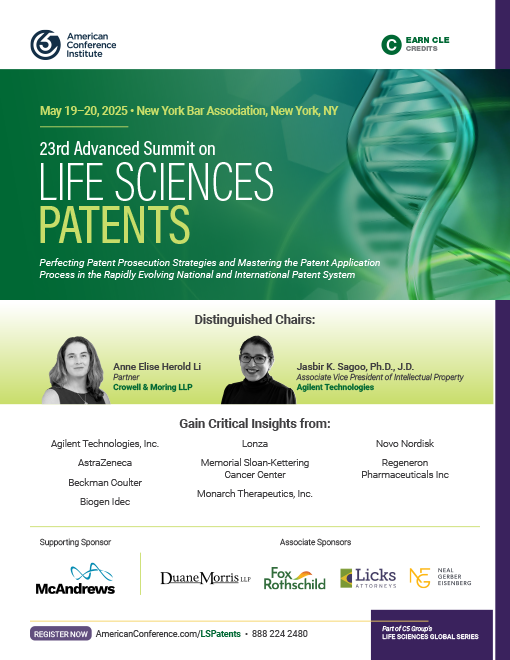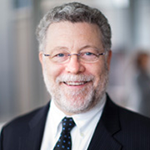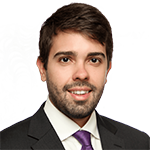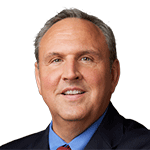Agenda

Flip through our conference brochure and discover what’s new this year.
Download Brochure
Day 1
May 19, 2025
Registration and Breakfast
The Civics and Cents of Life Sciences IP 2025: Assessing the Political and Economic Impact of the Federal Approach to Life Sciences Patents under a New Administration

Anne Elise Herold LiPartnerCrowell & Moring LLP

Joshua KreshResearch Professor and Executive DirectorIPPI: The IP Policy Institute

Susan KrumplitschPartnerDLA Piper US

Deborah SterlingDirectorSterne, Kessler, Goldstein & Fox PLLC
With a new administration taking office, an increase in congressional action, and the Supreme Court’s incoming slate of patent law cases, all three branches of the federal government are poised to cause major shifts to the life sciences patents landscape in the coming months. Our panel will share insights on what we can expect from Washington in the IP space, and its impact on life sciences IP inventions and markets in the next year and beyond.
- Assessing the first 4 months of Trump’s second term and the impact on life sciences patents
- Forecasting changes in the next year of the administration that will impact IP law
- Examining the status of March-In Rights
- Identifying how the priorities of new leadership at the FDA, USPTO, and FTC will influence life sciences IP
- Anticipating the impact of the Loper decision on administrative action
- Norwich Pharmaceuticals, Inc. v. Becerra et al
- Eli Lilly and Company et al v. Xavier Becerra et al
- Assessing the viability of current and pending federal legislation surrounding life sciences IP, including:
- Status report on the future of the Inflation Reduction Act
- PREVAIL Act
- RESTORE Act
- PERA
- Surveying the current slate of cases before the Supreme Court and what these pending decisions will mean for life sciences patents
- Edwards Lifesciences Corp. v. Meril Life Sciences Pvt. Ltd.
- Dewberry Group v. Dewberry Engineers
- Lightning Defense Group v. SnapRays, dba SnapPower
- ParkerVision v. TCL Industries
Morning Coffee Break

Peter F. CorlessPartnerFox Rothschild LLP

Sanjay K. MurthyShareholderMcAndrews, Held & Malloy, Ltd.

Kevin NoonanPartner | Co-Chair Biotechnology and Pharmaceuticals Practice GroupMcDonnell Boehnen Hulbert & Berghoff LLP
The concept of patentability serves as the fundamental underpinning of patents and, thereby, the life sciences industry. Keeping abreast of current trends, changes, and potential pitfalls in patentability is key to a successful life sciences patents practice.
Topics include:
- Mastering subject matter eligibility in order to be determined eligible
- ChromaDex, Inc. v. Elysium Health, Inc.
- Drafting patent applications to focus on the practical applications of the drug or device
- Avoiding claiming of prior art
- Understanding how to satisfy 101 without running afoul of 102, 103, or 112
- Identifying the proper standard under 101 for inventions created with or involving AI
- Anticipating new 101 guidance from the PTO, the courts, or Congress
Claims Drafting for a New Age: Mastering Written Description and Enablement for Today’s Life Sciences Inventions

Thomas J. Campbell, Jr.PartnerNeal, Gerber & Eisenberg LLP

Thomas KowalskiPartnerDuane Morris LLP

Hilary LibkaChief IP Counsel, Associate General CounselMemorial Sloan-Kettering Cancer Center

Roberto RodriguesPartnerRNA Law
We find ourselves in a new, post-Amgen v. Sanofi world, which mandates an evolution in the specificity of written description in patent applications. As seasoned practitioners well know, written description can make the difference between success and failure. Ensuring the appropriate level of detail means using language with clarity and specificity. As technology continues to develop, and processes occur within a black box, the challenge of written description and enablement grows.
This session will discuss how to draft claims for life sciences inventions in this new environment.
- Examining current USPTO guidance on written description and enablement
- Moving beyond boiler-plate descriptions in order to construct a claim that properly captures the invention, application of that invention, and environment within which that invention functions
- Rethinking written description and enablement to hit moving targets as technology matures and AI continues to advance
- Utilizing variables and modifiable definitions to exponentially increase claim scope
- Drafting claims that cover and incorporate future developments
- Novartis v. Torrent
- Broadening patent scope through means-plus-function claims
- Ex parte Chamberlain
- Juno Therapeutics, Inc. v. Kite Pharma, Inc.
Networking Lunch

Julie Burke, PhDExpert Witness on US Patent Practice and ProceduresIPQuality Pro LLC

Thomas L. IrvingSenior PartnerThe Marbury Law Group, PLLC

Teige P. Sheehan, Ph.D.Patent Attorney--PartnerHeslin Rothenberg Farley & Mesiti P.C.
In the last two years, the courts have grappled with the applicability of obviousness-type double patenting (ODP) on parent patent applications – significantly impacting life sciences patents. This session will provide an analysis of these decisions, as well as strategies for how to square these determinations against each other.
- Defeating ODP rejections at the USPTO
- Providing strategies for survival following the denial of the petition for cert in In Re Cellect
- Case review:
- Acadia Pharm. Inc. v. Aurobindo Pharm. Ltd
- Allergan U.S., Inc. v. MSN Labs. Pvt. Ltd.
Afternoon Networking Break

Mary TillOf CounselFinnegan, Henderson, Farabow, Garrett & Dunner, LLP

Arash Behravesh, BSChE, MSPH, MBA, JDSr. Counsel, PatentsAgilent Technologies, Inc.
In May of 2024, the USPTO released its proposed rule on Terminal Disclaimer Practice to Obviate Nonstatutory Double Patenting, with commenting closed in July. In November 2024, the USPTO withdrew the rule, allowing patent owners to continue to utilize terminal disclaimers as a strategy for overcoming non-statutory double patenting rejections. This session will explore the continued use and impact of terminal disclaimers on life sciences patents.
- Unpacking the history of the Terminal Disclaimer Rule from proposal to withdrawal
- Implementing strategies for utilizing of terminal disclaimers to effectively protect your patents
- Examining the interactions between terminal disclaimers, patent term adjustments (PTA), and patent term extensions (PTE)
- Exploring the Contingent Terminal Disclaimer (CTD) filed in Acadia
- Does the current statute cover a CTD, or is a statutory amendment required?
Day 1 Concludes
Day 2
May 20, 2025
Registration and Breakfast

Patrick FogleVice President, Global Head of Intellectual PropertyLonza

Marija V. JankovichSenior Director, R&D CounselBiogen MA, Inc.

Christopher PottsCo-Founder, CEOMonarch Therapeutics, Inc.

Jasbir K. Sagoo, Ph.D., J.D.Associate Vice President of Intellectual PropertyAgilent Technologies
As AI becomes more and more ubiquitous, it is critical to understand how to use AI as a tool in the life sciences patent process. From drug discovery to data analysis to patent applications, this session will cover the variety of ways you can incorporate AI into your IP practice.
Questions and topics of discussion include:
- What licensing clauses should be in place for the data in your AI license?
- Understanding which clauses are of particular interest to life sciences IP
- Which courts are currently best suited for bringing AI contractual disputes?
- Dealing with privacy laws and data monetization when using AI
- Confronting bias compounding and blindness in AI systems
- What are the warranties provided given bias?
- What are the licensing implications?
- How do you monetize in view of bias?
Morning Coffee Break

Laura N. Arneson, Ph.D., J.D.Senior Intellectual Property CounselBeckman Coulter

Troy GroetkenShareholderMcAndrews, Held& Malloy, Ltd.

Ksenia TakhistovaChief Legal OfficerLCM Biosensor Technologies LLC
Hitting the Books: Examining Orange and Purple Book Delisting from a Patent Prosecutorial Perspective

Kim BraslowSenior Director, IP and Government AffairsAstraZeneca

Kurt KarstDirectorHyman, Phelps & McNamara PC

Nicole WoodsAssociate Vice President, Assistant General Patent CounselEli Lilly and Company
In December 2024, the Federal Circuit in Teva Branded Pharm. Prods. R&D, Inc. v. Amneal Pharms. of N.Y., LLC affirmed a district court decision determining that Teva must delist five patents from the FDA Orange Book. The initial lawsuit was filed during a period of calls by the FTC for the delisting of various Orange Book combination patents.
In response to the Federal Circuit’s decision, the FTC stated, “Removal of junk patent listings is critical to ensuring drugmakers can fairly compete to offer generic drugs at a lower price for consumers.”
- Considering the result of Teva’s request for rehearing en banc
- How will the determination to stay delisting until all remedies have been exhausted impact the timeline?
- Unpacking the FTC’s definition of “junk patents”
- Diving deep on how patents are determined “junk” and made liable to delisting
- Evaluating Orange Book and Purple Book patents in light of current jurisprudence for potential flaws and vulnerabilities to delisting as well as invalidity
- What to expect for the future of Orange Book patent delisting under new FTC leadership
- A brief look at the current state of the Purple Book and forecasting for its future
Networking Lunch
From Administrative Trade Policy to Patent Systems in Europe and Asia: Navigating Life Sciences Patents on an International Scale

Isobel BarryPartnerCarpmaels & Ransford LLP

Mami HinoPartnerAbe Ikubo Katayama

Otto LicksFounding PartnerLicks Advogados

Stanislas Roux-VaillardPartnerHogan Lovells (Paris) LLP
In an increasingly global world, with international development processes and supply chains as well as the as the United States’s exit from the World Health Organization, it is critical to understand how to attain, protect, and utilize patents outside of the US system.
This session will discuss international patent systems and what every life sciences patent prosecutor needs to know about international security, collaboration, and innovation.
- Untangling how recent administrative actions including tariffs and trade concerns may impact your international life science patent strategies
- Europe
- Updates on the UPC after the first two years of its tenure
- Review of current trade concerns and areas to watch
- Revisiting second medical use claims
- Asia
- Analysis of the Chinese patent system and how PTE and PTA are applied
- An explanation of the Japanese patent system
- US-China relations and the handling of AI
- Current status of the BIOSECURE Act
Afternoon Networking Break

Atabak RoayeeSenior Director – Assistant General Counsel, IPRegeneron Pharmaceuticals Inc

Jasbir K. Sagoo, Ph.D., J.D.Associate Vice President of Intellectual PropertyAgilent Technologies

Gloria OlivierSenior Director – Biopharma, Business DevelopmentMayo Clinic Ventures
Patents serve as the underpinning for the most robust IP portfolios in the life sciences industry. However, portfolio expansion can require multiple layers of IP protection. With a robust and wide-reaching portfolio, life sciences companies can stay competitive in an increasingly competitive marketplace.
- Developing IP strategies that utilize trade secrets and copyright in tandem with patents
- Utilizing tracking software
- Employee policies
- Incorporating design patents into your IP portfolio
- Exploring IP rights attached to drug applications and medicines for under-represented populations
- Utilizing second medical use claims for domestic patents, and determining how to maintain protection abroad
- Detangling the web of combination therapies, new treatment routes, formulations, methods of administration, and the evolution of a drugs development
- Determining how this web interacts with obviousness
- Factoring in considerations for international IP protections
- Utilizing narrow claims and intentional and strategic timing to get the longest patent term protection available
- Sanofi v. Watson